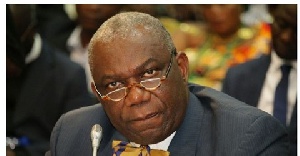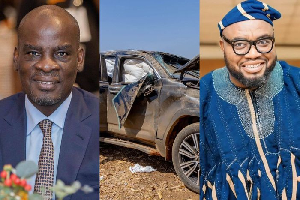Government is committed to help achieve universal access to electricity in the country by 2020, Mr Boakye Agyarko, the Minister of Energy, has said.
“We are also interested in achieving universal access to electricity in the country by 2020 and, therefore, we are intensifying our rural electrification scheme through the national grid. We are also giving serious attention to mini-grid and all grid solutions for areas that may prove uneconomical to extend the national grid to or [are] difficult in approaching,” he said on the second day of the National Policy Summit in Accra on Tuesday, 16 May.
Mr Agyarko urged the Public Utilities Regulatory Commission (PURC) to put in place systems to help demystify the reading and understanding of meters as far as electricity bills are concerned.
“We ought to make sure that electricity is affordable, reliable, and stable. That means that we have to re-examine the transparency of our tariff regime,” he noted.
“I’m sure most of you, like myself, receive electricity bills and when they finally come, we can’t make head or tail out of what it is. I had a recent short discussion with a gentleman from PURC and I said what I’m looking for is for the PURC to be able to put on their website an interactive use calculator so I can go to the website and say, ‘I’ve consumed 300 units of power.’ Put that number in and it should tell me how much I owe. It shouldn’t be as if we are consulting an oracle when it comes to electricity bills... So my plea to PURC is put that thing on your website and let everybody go and look at their meter and say, ‘From yesterday to today, I consumed 100 units and if I put that 100 units in, it translates to me the amount in cedis that I owe ECG.’”
Touching on other aspects of energy, Mr Agyarko noted that there was the need to make a clear decision on the end use of gas. “Is it all for power? Are we putting some in petrochemical such as refineries, such as plastics? Are we putting some in agro chemicals such as production of urea and fertiliser?” he quizzed.
Mr Agyarko further noted: “As we move in this direction, we also need to understand the need to move part of our gas up country. For example it will be important to establish a generation load in the Ashanti and Brong Ahafo regions in order to properly balance the load distribution and the grid stability,” adding: “We also need to start piping gas all across the country if we are supposed to move from wood fuels to LPG. Construction of such critical infrastructure will be a good business opportunity for those who care to invest.”
Business News of Tuesday, 16 May 2017
Source: classfmonline.com













